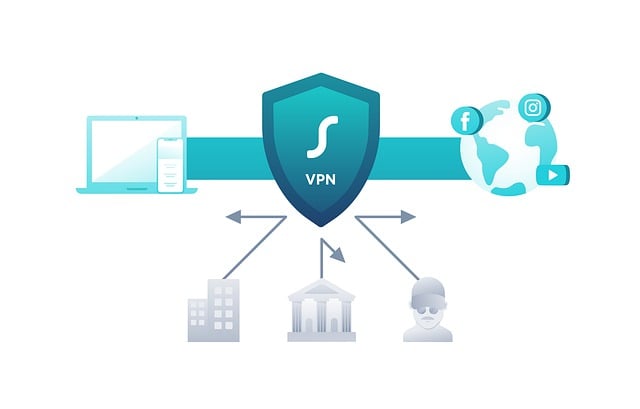In South Africa, Ponzi schemes pose a significant risk to investors, characterized by unrealistic claims, rapid wealth promises, lack of transparency, and aggressive sales tactics. To avoid these scams, investors should verify legitimacy through regulated institutions, be wary of excessive returns with little risk, and scrutinize historical performance data for consistent growth patterns. Key indicators include high-pressure sales, word-of-mouth marketing, and a complex web of funds. By staying vigilant and using tools like the Financial Services Board (FSB), South Africans can protect themselves from falling victim to Ponzi schemes.
In the world of South African investments, understanding how to recognise a Ponzi scheme is crucial for protecting your financial future. This article guides you through the essentials of these fraudulent schemes, focusing on common red flags and strategies used in South Africa. From high-return promises to intricate recruitment tactics, learn how to navigate the investment landscape wisely. By the end, you’ll be equipped with the knowledge needed to avoid falling victim to a Ponzi scheme.
- Understanding Ponzi Schemes: The Basics
- Common Red Flags in South African Investments
- Analyzing the Promise of High Returns
- Examining the Structure and Recruitment Strategies
- Protecting Yourself: Steps to Avoid a Ponzi Scheme
Understanding Ponzi Schemes: The Basics

In South Africa, as in many parts of the world, Ponzi schemes have become a significant concern for investors and regulatory bodies alike. A Ponzi scheme is an illegal investment fraud where returns are paid to existing investors from funds contributed by new investors, rather than from any actual profit earned. This creates the illusion of a successful investment opportunity, luring in more participants with promises of high returns. However, without any real investment or business activity generating profits, the scheme eventually collapses when it becomes unsustainable.
To recognise a Ponzi scheme, South African investors should look out for several key indicators. These include extraordinary claims of guaranteed or high returns with little to no risk, unrealistic promises of rapid wealth generation, and a lack of transparency regarding how investment funds are being utilised. Additionally, the operators of such schemes often use high-pressure sales tactics, create a sense of urgency to invest immediately, and may discourage questioning or due diligence. Understanding these basic principles can help investors avoid becoming victims of Ponzi schemes in South Africa.
Common Red Flags in South African Investments

When investing in South Africa, or anywhere else for that matter, it’s crucial to be aware of potential red flags that could indicate a Ponzi scheme. One common sign to look out for is excessive promises of high returns with little to no risk. In South Africa, where economic disparities exist, scammers often target those seeking quick and substantial financial gains. Be wary of investments promising unrealistic rates of return, especially if they are guaranteed or seem too good to be true.
Another flag to watch for is the lack of transparency and regulatory oversight. Reputable investment opportunities should provide clear and detailed information about the investment strategy, risks involved, and track record. If an investment scheme avoids sharing this information, lacks regulatory authorization, or uses complex jargon to hide its true nature, it could be a Ponzi scheme in the making. Always verify the legitimacy of investments through regulated financial institutions or trusted advisors.
Analyzing the Promise of High Returns

When evaluating investment opportunities in South Africa, it’s crucial to scrutinize the promise of high returns, a red flag often waving in the face of potential investors in Ponzi schemes. These fraudulent operations typically offer unusually high and quick returns with little or no risk, sounding too good to be true—and usually are. It’s essential to remember that legitimate investments rarely promise astronomical returns without significant risk. Always ask: Is this return realistic given the investment’s nature? A prudent investor will research and understand the potential risks and rewards before committing funds.
One of the key ways to analyze these promises is by examining the investment’s track record. Requesting and verifying historical performance data can provide insights into whether the returns are consistent over time, as legitimate investments tend to have more stable growth patterns. Be wary of any scheme that refuses to share such information or has a history of sudden, unexplained gains—these could be red flags indicating a Ponzi structure where new investors’ money is used to pay older ones, creating an illusion of success.
Examining the Structure and Recruitment Strategies

When examining a potential Ponzi scheme in South Africa, understanding its structure and recruitment strategies is crucial for How To Recognise A Ponzi Scheme. These schemes often operate with a complex web of investments, where new funds from investors are used to pay returns to earlier investors, creating the illusion of a profitable venture. The recruiters typically target individuals through various means such as social media, word-of-mouth, or even high-pressure sales tactics. They may promise significant and guaranteed returns, often with minimal risk, to entice unsuspecting investors. By analysing these patterns, South African residents can better identify red flags that might indicate a fraudulent scheme.
Keep an eye out for unrealistic investment opportunities promising extraordinary returns, especially when the offer lacks transparency or concrete financial backing. Legitimate businesses typically provide detailed information about their operations, while Ponzi schemes may skirt these regulations to avoid scrutiny. Moreover, be cautious of recruitment strategies that pressure you into investing quickly or promote a sense of urgency, as this is a common tactic to prevent investors from thoroughly evaluating the investment’s viability.
Protecting Yourself: Steps to Avoid a Ponzi Scheme

Protecting yourself from falling victim to a Ponzi scheme in South Africa requires vigilance and an understanding of how these scams operate. One of the primary keys is to be wary of investments that promise unusually high returns with little or no risk. Legitimate businesses rarely offer such attractive deals, especially if they’re asking for your money upfront. Always verify the legitimacy of the investment opportunity by checking if it’s registered with relevant financial authorities like the Financial Services Board (FSB).
In South Africa, you can use tools provided by the FSB and other regulatory bodies to research companies and individuals offering investment schemes. Be suspicious of pressure tactics or promises of quick riches. Legitimate businesses allow ample time for decisions and don’t rush investors into commitments. If something feels off, trust your instincts and avoid investing. Remember, if an opportunity seems too good to be true, it probably is.
Understanding how to recognise a Ponzi scheme is crucial for safeguarding your investments in South Africa. By being vigilant and discerning, you can avoid falling victim to these fraudulent schemes that promise high returns with little risk. This article has outlined key red flags, such as unrealistic investment promises, lack of transparency, and aggressive recruitment strategies, enabling you to navigate the financial landscape wisely. Remember, it’s essential to do your research, seek professional advice, and always be cautious when opportunities seem too good to be true. By following these steps, you’ll be better equipped to protect yourself from Ponzi schemes in South Africa.

